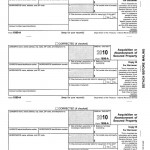The rookie bankruptcy lawyer was clearly proficient at math, but forgot the bankruptcy administration end game: money for creditors.
The client owned two assets with apparent equity and the available grubstake did not cover both. The attorney had calculated the equity in the home thus:
(Fair market value) less (mortgage balance) less (exemption) = equity
The equity, on his facts, was $3000. Would a trustee sell the house to get that $3000?, he asked.
But wait. How’s the trustee going to get that equity except by selling the house? Where are the costs of sale, the realtor’s commission?
Problem solved. The trustee has to be able to turn the asset into cash, pay the secured claims, the exemption, the costs of sale and the trustee’s commission before there is a dollar available to pay creditors.
So, the real calculation to compute whether an asset is at risk looks like this:
(fair market value) – (secured debt) – (exemption) – (costs of administration including costs of sale) = equity for creditors
Or, you can look at it a different way: you don’t need to even use an exemption when fair market value, less debt, less costs of administration yields a negative number. Only when there is a positive number might there be some benefit to creditors in liquidating the asset.
To restate the obvious, there are no costs of sale for cash in the bank, but serious costs of sale to sell used car or business inventory. If you have to choose where to apply exemption among different kinds of assets, protect the assets with little or no cost to administer, and leave unprotected items with difficult liquidity or doubtful value.
Image courtesy of superwebdeveloper









Great point. I find that it is often advisable to state in the description of real estate that the Market Value stated is based on either a market analysis or tax-assessed FMV minus anticipated costs of sale. This answers a lot of questions for the Trustee before you ever set foot in the 341 Meeting.
I usually put the fair market value in the schedules so that my number matches the BPO or Zillow or whatever. I figure the trustee can calculate the costs of sale, and I want to leave it open for the trustee to use 8% where I might figure 6-7%.
Does this mean the trustee MUST use the cost of sale in evaluating whether to take property? In other words, could a spiteful trustee take property that has a small FMV where the cost to liquidate would leave nothing for creditors?
I guess what Im asking is, is the consideration of the cost of liquidation a practical aspect, or is there a legal grounds to say the trustee can’t take the asset because it would yield nothing for the creditors after calculating liquidation costs?
A trustee has to notice a sale of bankruptcy estate property to creditors and obtain a court order approving. I can’t imagine a court approving a sale that deprives the debtor of possession of the property that doesn’t benefit creditors. I don’t thin spite extends that far.